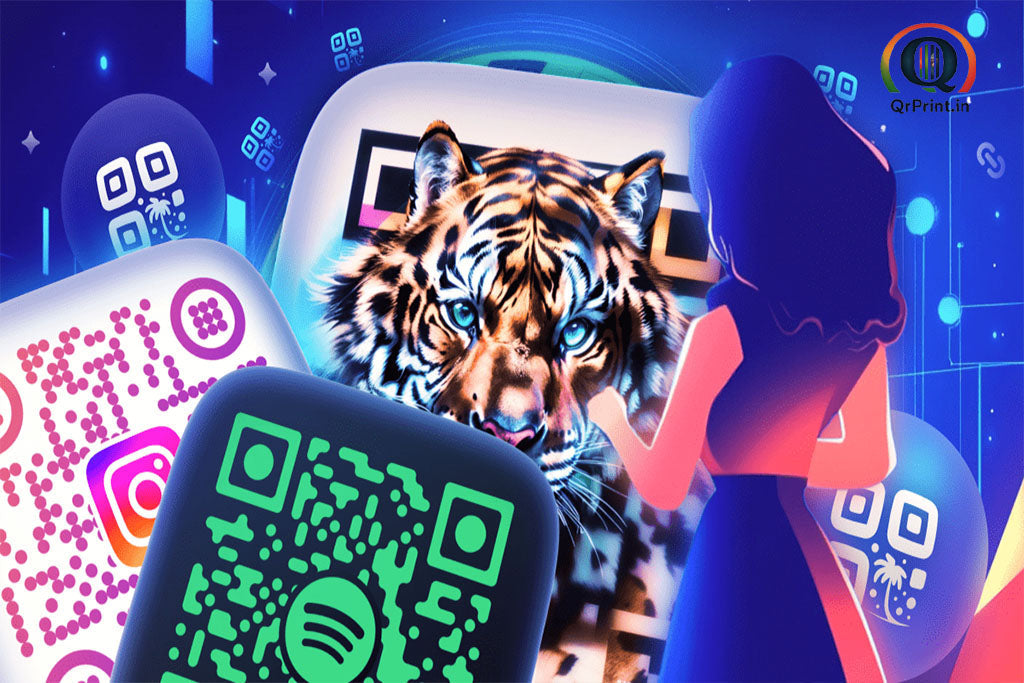
Why QR Codes Are Essential in Today's Digital World
Share
In a world where technology and convenience are at the forefront of nearly every industry, QR codes have become an indispensable tool in bridging the gap between physical and digital experiences. These simple yet powerful tools have evolved from niche uses to everyday necessities. But what exactly makes QR codes so crucial in today's fast-paced, tech-driven society?
Let’s take a closer look at why QR codes are more important than ever and how they continue to shape our interactions with the world around us.
1. Seamless Transition from Offline to Online
One of the key reasons QR codes have gained such widespread popularity is their ability to connect offline experiences to the online world. Whether it’s a poster, a business card, a product label, or even a billboard, QR codes provide a quick and easy way for users to access additional content, websites, promotions, and more without having to type anything manually.
For instance, customers can scan a QR code on a restaurant menu to access the digital version, or they can scan it on a product packaging to check product details or even track delivery. This seamless transition between physical and digital worlds is invaluable, especially in today’s contactless environment.
2. Touch-Free Interaction
In the wake of the COVID-19 pandemic, businesses worldwide have been prioritizing touch-free interactions. QR codes allow customers to access information, make payments, check-in for events, or order food—all without needing to touch a shared device or surface. This reduces the potential spread of germs, offering both safety and convenience for consumers.
For example, in restaurants, QR codes on tables enable diners to view the menu and place orders directly from their smartphones, creating a safer, more hygienic dining experience. Similarly, many businesses use QR codes for contactless payment solutions, reducing the need for physical cash or credit card transactions.
3. Ease of Use
The simplicity of QR codes is one of the main reasons they are so widely adopted. All a user needs is a smartphone with a QR code scanner (many smartphones have this functionality built-in through the camera app). Scanning a QR code takes mere seconds, making it an efficient way to gather information, access digital content, or complete a transaction.
This ease of use is particularly important in industries like retail, marketing, and hospitality, where businesses need to quickly provide information or offers to customers without complicated processes. With the rapid adoption of smartphones, QR codes have found their place as an accessible and convenient solution for businesses and consumers alike.
4. Effective Marketing Tool
For businesses, QR codes are a powerful marketing tool that can drive customer engagement. Marketers can embed QR codes into advertisements, billboards, brochures, and social media campaigns, offering direct access to landing pages, product information, promotions, or surveys.
By using QR codes, businesses can bridge the gap between traditional marketing efforts and digital engagement. When customers scan a QR code, they are immediately taken to a customized experience, whether it’s a special offer, a video, or a discount code. This interaction helps businesses track user behavior, analyze engagement, and improve their marketing strategies in real-time.
5. Data Collection and Analytics
QR codes are not just about offering easy access—they’re also valuable tools for data collection. Businesses can track how often and where their QR codes are being scanned, providing valuable insights into customer behavior, preferences, and geographic locations. This data is useful for refining marketing strategies, personalizing offers, and optimizing customer engagement.
For instance, a retail store can track which QR codes are scanned the most and adjust product placements or promotions accordingly. Similarly, event organizers can gauge the effectiveness of their marketing efforts by analyzing how many people scanned the QR codes on promotional materials before attending the event.
6. Cost-Effective Solution
QR codes are incredibly cost-effective, especially when compared to other digital solutions. There are no significant upfront costs associated with generating a QR code. In fact, many online QR code generators are free or available at a low cost, making them an accessible solution for businesses of all sizes.
Since QR codes are easily printable on any surface—from business cards to flyers to packaging—they provide a simple, cost-efficient way for companies to connect with their audience without requiring significant investment in expensive technology.
7. Enhanced Customer Experience
QR codes enhance the overall customer experience by making it faster, easier, and more convenient for customers to access information, services, or products. Whether it’s a link to a tutorial video, a discount offer, or access to an event’s digital schedule, QR codes can provide instant value to users.
For instance, in the tourism and hospitality industries, QR codes can help travelers navigate public spaces, access information about local attractions, or even check in to their accommodations. The integration of QR codes into everyday interactions elevates the customer experience by making it more personalized, accessible, and engaging.
8. Increased Security and Fraud Prevention
QR codes are also being used in a variety of security applications. For instance, two-factor authentication (2FA) codes often rely on QR codes for secure login verification. Additionally, QR codes can be embedded with encrypted data, ensuring the security of financial transactions, identity verifications, and private communications.
In industries like banking, QR codes enable secure payments, as customers can scan a code to confirm transactions rather than typing in sensitive data manually. This helps reduce the risk of fraud and identity theft.
